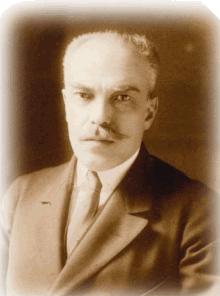
Back جوزيبى سالفاجو راجى ARZ Giuseppe Salvago Raggi German Giuseppe Salvago Raggi Hausa Giuseppe Salvago Raggi Italian 朱塞佩·萨尔瓦戈·拉吉 Chinese
This article relies largely or entirely on a single source. (July 2017) |
You can help expand this article with text translated from the corresponding article in Italian. (July 2017) Click [show] for important translation instructions.
|
Giuseppe Salvago Raggi | |
|---|---|
 | |
| Italian Ambassador to China | |
| In office 1899–1901 | |
| Preceded by | Renato De Martino |
| Succeeded by | Vitale Giovanni Gallina |
| Italian Governor of Eritrea | |
| In office 1907–1915 | |
| Preceded by | Ferdinando Martini |
| Succeeded by | Giovanni Cerrina Feroni |
| Italian Governor of Somaliland | |
| In office 1906–1907 | |
| Preceded by | Luigi Mercatelli |
| Succeeded by | Tommaso Carletti |
| Personal details | |
| Born | 17 May 1866 Genoa, Italy |
| Died | February 28, 1946 (aged 79) Molare, Italy |
Giuseppe Salvago Raggi (17 May 1866 – 28 February 1946) was an Italian diplomat, born in Genoa. He was the son of Paris Maria Salvago and Violante Raggi. His father was After his mother's death in 1867, he acquired Raggi as his second surname in January 1881, "in memory of his mother".[1] His father, a landowner with a Catholic-liberal orientation, was a deputy in the Tenth Legislature.
Giuseppe Salvago Raggi graduated on 29 May 1887 from the School of Social Sciences in Florence, which his father had helped to found. The school represented the pinnacle of training for the ruling class and in particular for the diplomatic class. After a suggestion from his father, he travelled to different countries in the Middle East. He documented these journeys in his Lettere dall'Oriente (Letters from the East). Back in Italy, began his diplomatic career in 1889.

He was ambassador of Italy to China (1899–1901) and France. He was the Italian colonial governor of Somaliland (1906–1907) and Eritrea (1907–1915). He is best known for signing the Boxer Protocol on behalf of the Kingdom of Italy.
- ^ Olindo de Napoli, SALVAGO RAGGI, Giuseppe Maria, on treccani.it. URL consulted on 25 August 2024.